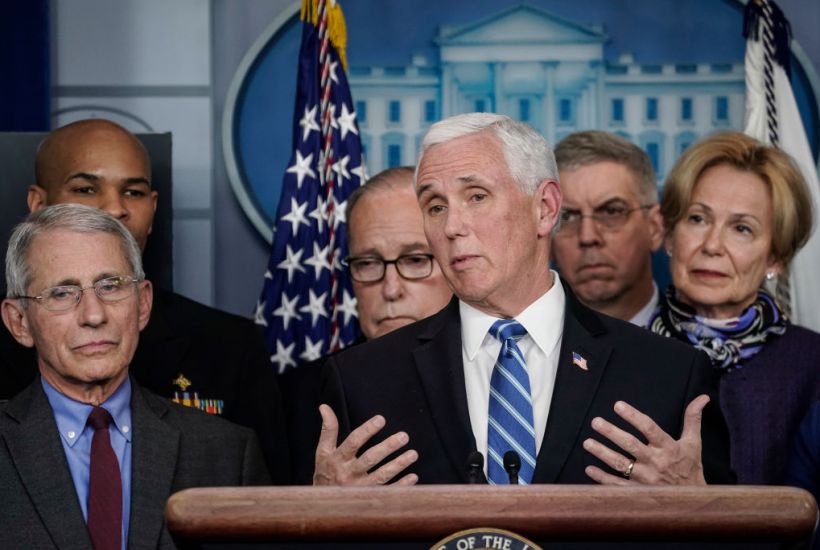The first victim of war, they say, is truth. The first victim of coronavirus, by contrast, is fiscal discipline. Yesterday, President Trump started negotiating with the Senate over a proposal to suspend payroll taxes, possibly until the end of the year. Wall Street certainly liked it: markets shot up by five percent. Whether future Americans will enjoy paying the bill is another matter.
The government’s proposal is not just targeted help for a few industries like travel and tourism, which stand to lose out heavily as people stay at home. It is not a modest tax cut to encourage Americans to go out and spend a little more. Even to call it a ‘stimulus package’ — as these things are pat to be called — seems pathetically inadequate. It is a full-on nuclear-powered splurge which threatens to knock the fiscal deficit permanently into an even higher orbit than it is already.
To forgo payroll taxes until the end of the year would cost the government a fortune: in 2018 payroll taxes brought in $1.17 trillion of federal revenue. By contrast, George W. Bush’s Economic Stimulus Act of 2008, formulated at the height of the banking crisis, involved $152 billion of tax rebates. In January 2009, in one of his first acts as president, Barack Obama followed it up with a $787 billion package, roughly two thirds of which was extra spending and a third was tax cuts.
But it took the near-collapse of the banking sector and the deepest recession since the 1930s to draw that sort of stimulus money out of the government. By contrast, coronavirus has so far afflicted 712 Americans, 27 of whom have died. That will certainly rise, but the disease is no bubonic plague. The mortality rate, from the Chinese experience, has been measured at around 0.9 percent. The chances of picking up the disease from another family member with whom you share a home has been measured at around 15 percent. The global death toll of 4000 so far is a tiny fraction of the 291,000 to 646,000 people a year globally who die from flu. Sure, it is a dangerous disease if you are elderly or infirm, but an excuse to jack up government debt by another trillion dollars?
Moreover, the suggestion of suspending payroll taxes was only one of a number suggestions floated by Head of the National Economic Council Larry Kudlow at a White House press conference on Tuesday evening. He also suggested there might be help for individual industries. When asked by reporters how he intended to make up the lost revenue, Kudlow merely shrugged his shoulders and said ‘We’re going to get a big growth kicker…we’ll make it up with much better growth’.
Well that’s OK, then. Or maybe not. We are seeing it all around the world now: there is an upwards ratchet in the sums governments feel able to borrow. Balancing the books hasn’t just gone out of fashion — it is treated as if it were some quaint tradition which died out long ago. Low inflation, low interests rates have lowered the cost of debt — for now. But it doesn’t take much to work out that this can’t go on forever. One day there is going to be a very nasty reckoning — a financial plague, I would guess, rather than a coronavirus.
See the full story of Coronavirus’s first victim? Money on Spectator USA.
Got something to add? Join the discussion and comment below.
Get 10 issues for just $10
Subscribe to The Spectator Australia today for the next 10 magazine issues, plus full online access, for just $10.





















Comments
Don't miss out
Join the conversation with other Spectator Australia readers. Subscribe to leave a comment.
SUBSCRIBEAlready a subscriber? Log in